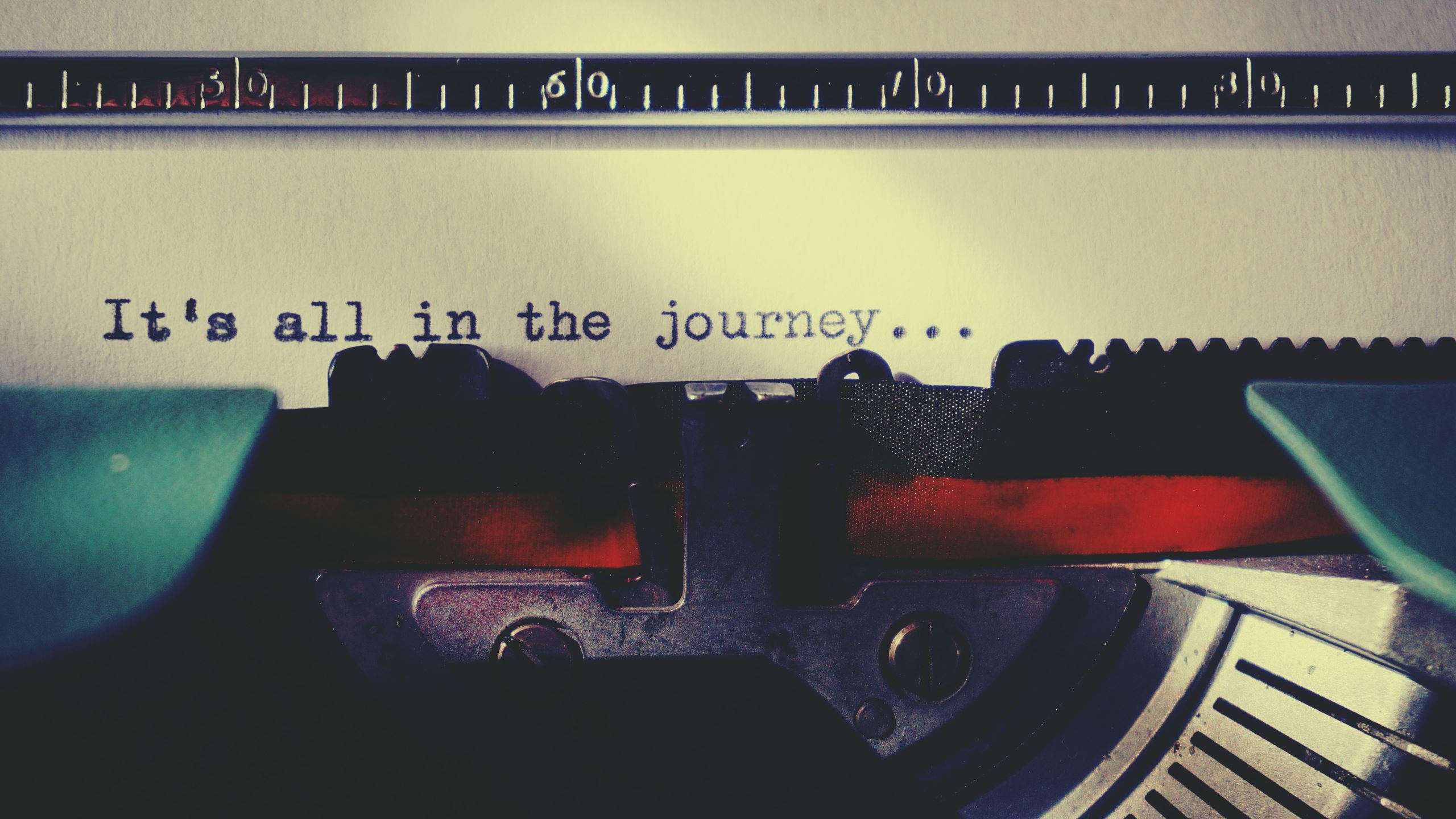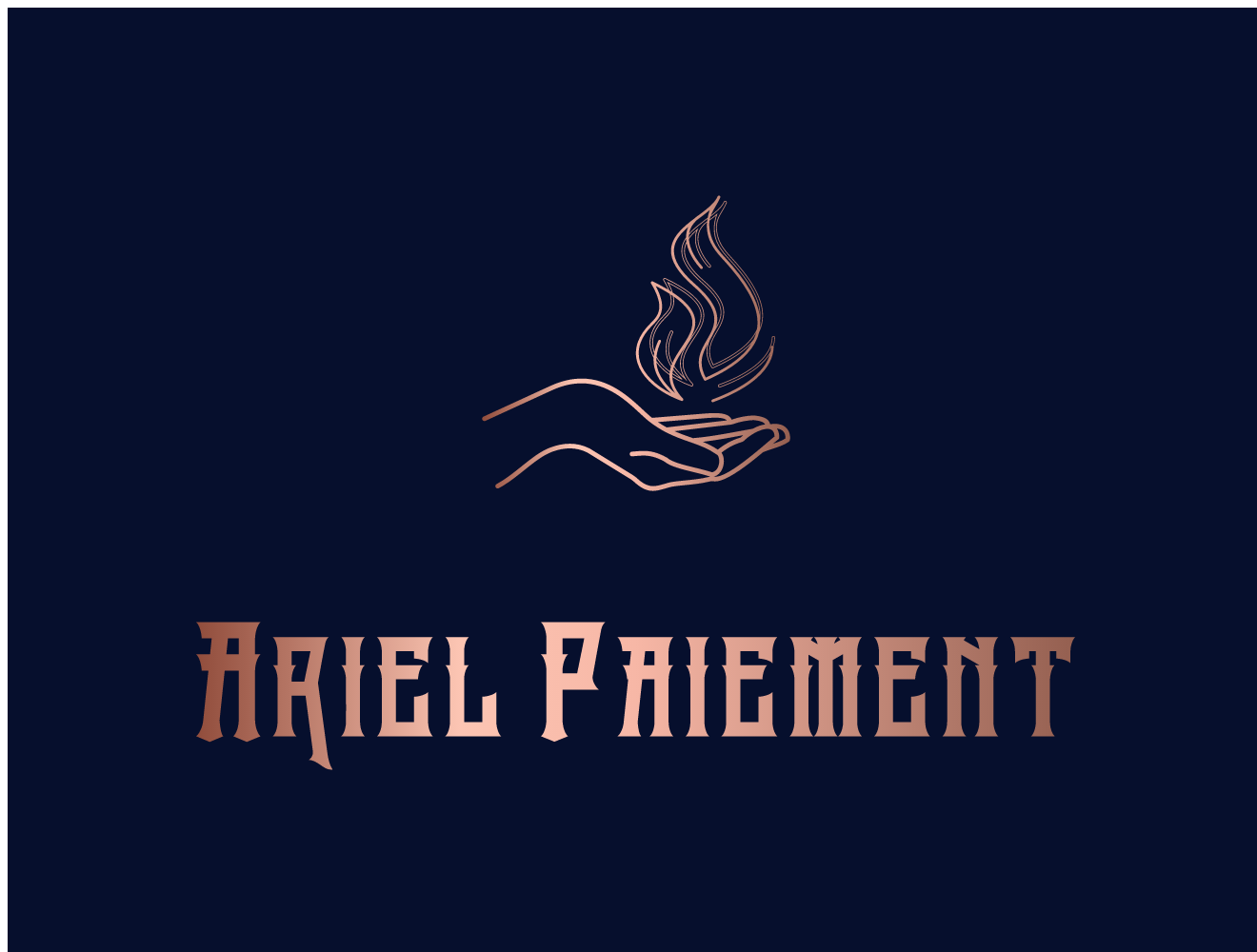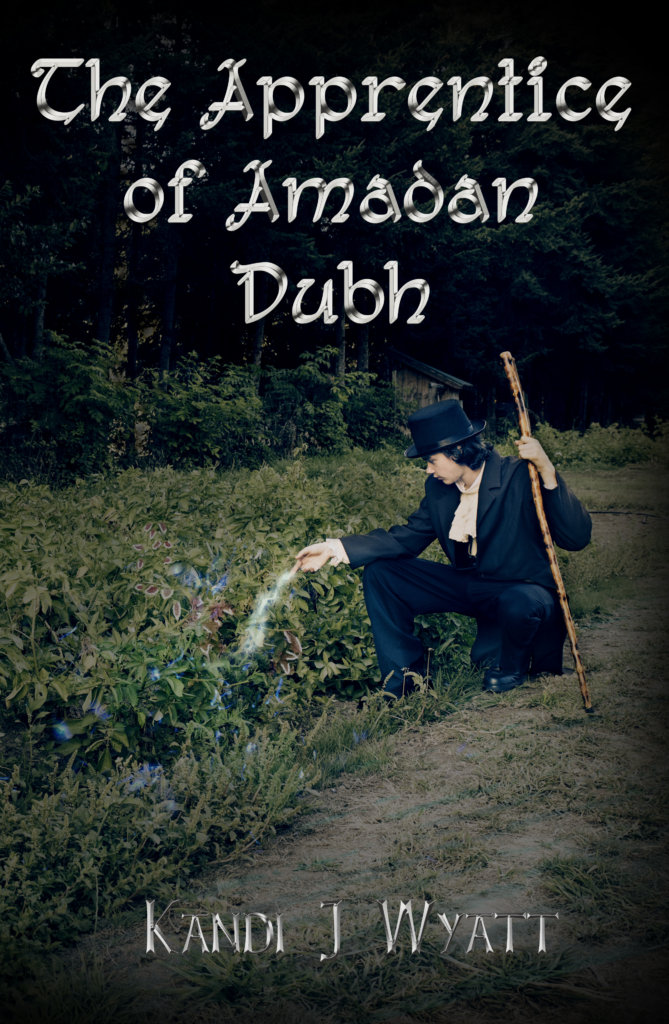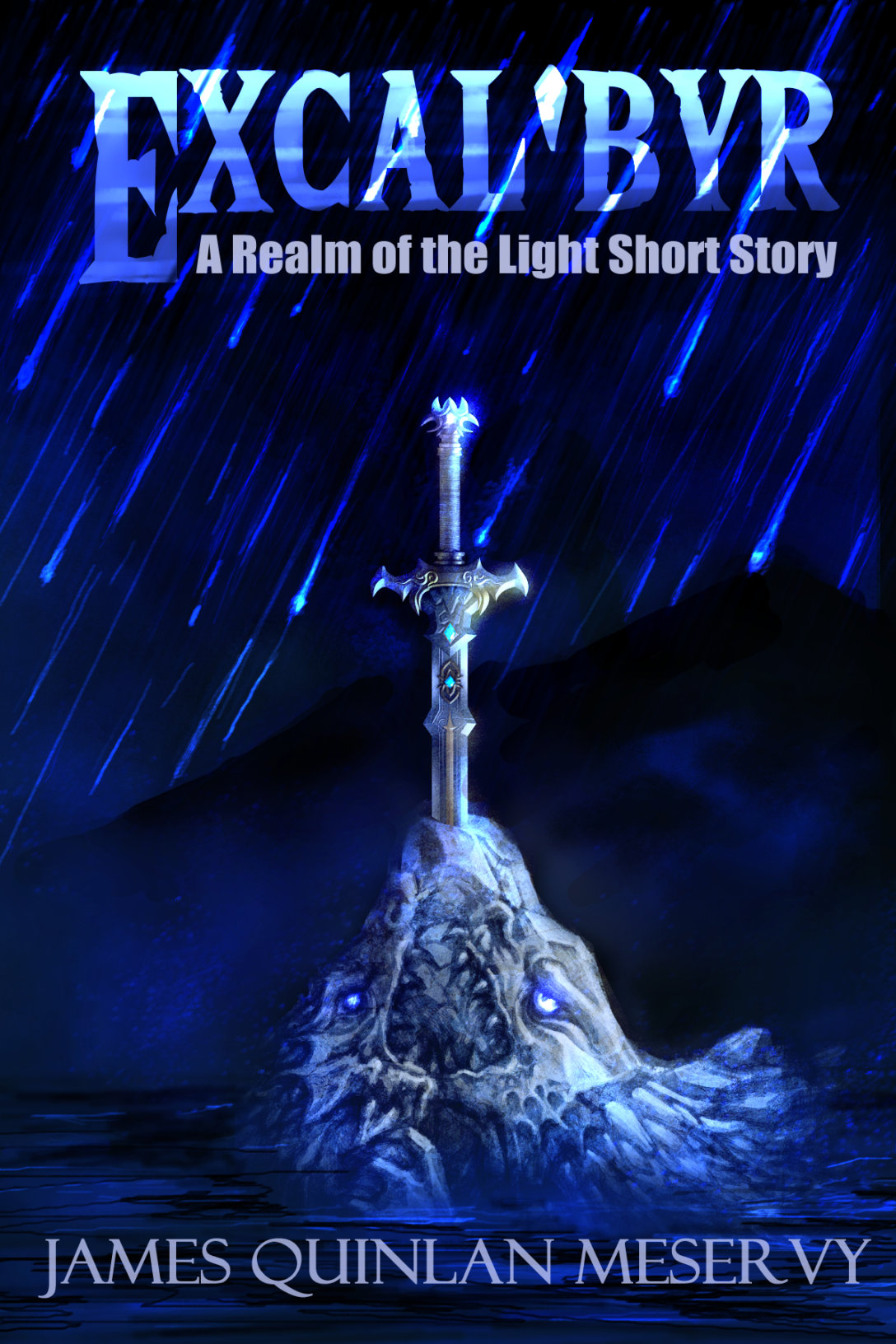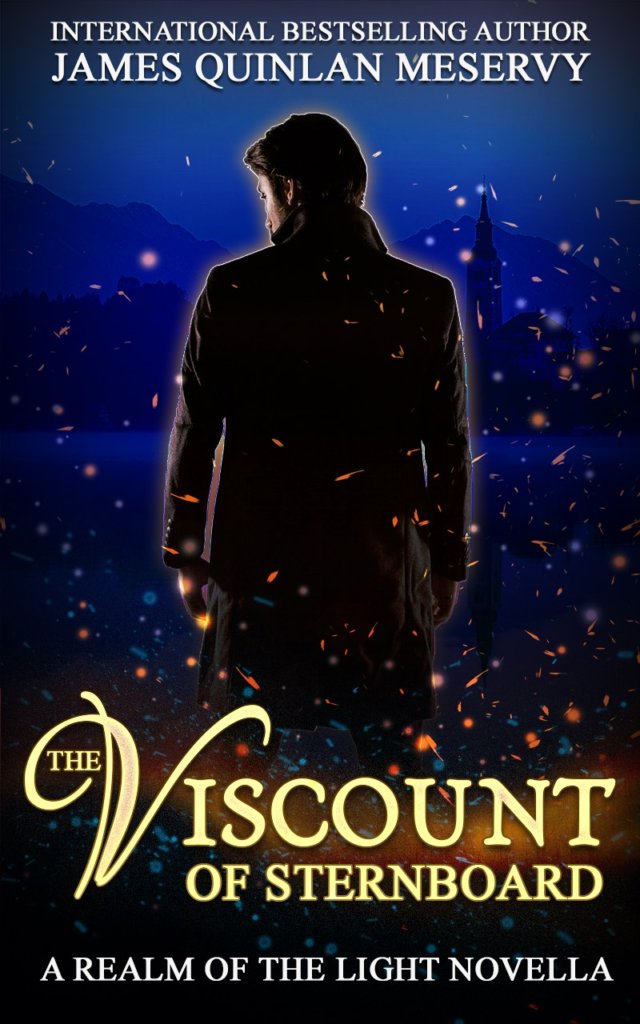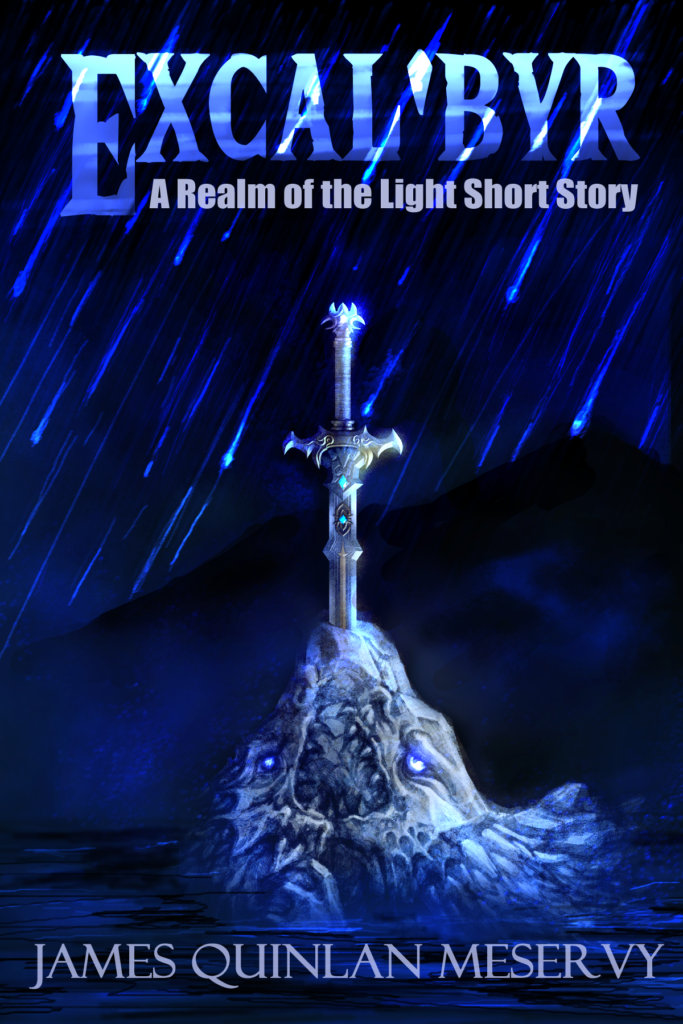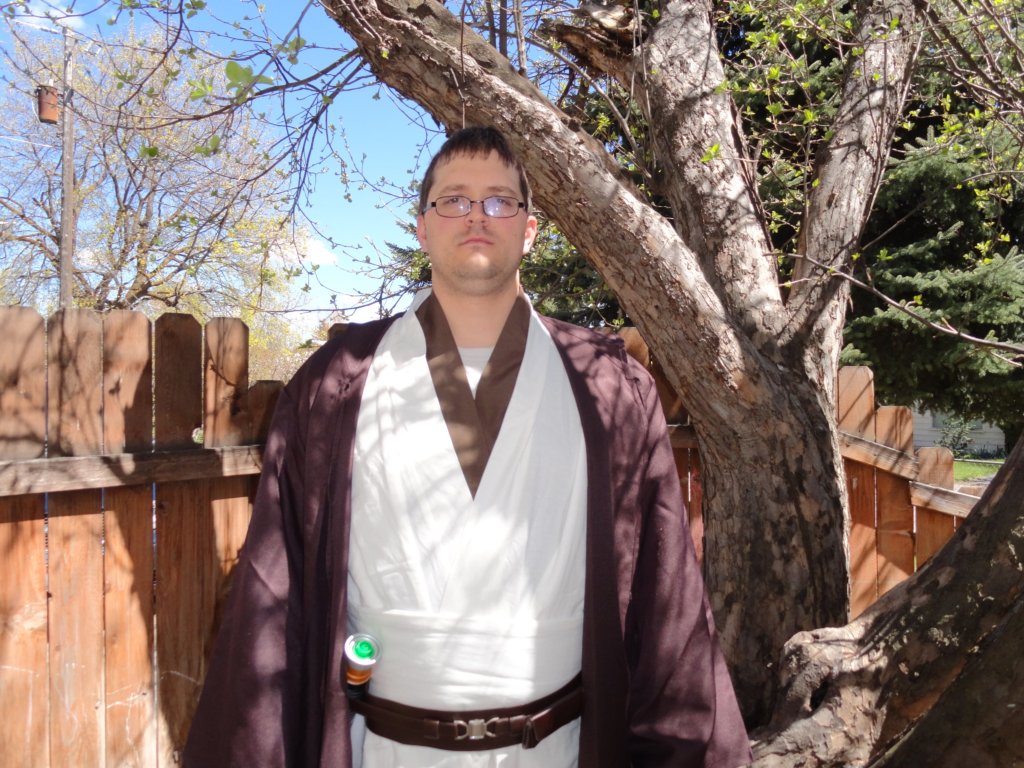Introduction
Right up front, I’ll warn you this post is going to be long. To answer the questions I’m going to discuss here thoroughly, I’ll need you to bear with me. The argument I’m going to present takes some set up, and so I hope you’ll stick with me as I go through the necessary background information to get to the argument and the answer to the questions I’m going to present. Furthermore, for those who may be liberals in my audience, understand up front that I do not support racism in any way, shape, or form. I’m about to go through why. I’m hoping you’ll track with me on this one, though, because I’m about to go through the moral, historical, and ideological grounds that lead to racism. I’ve spoken to various liberals about why they believe what they do regarding racism, and I often hear good reasons with very, very inconsistent and bad logic. It’s entirely possible to be right and be completely inconsistent in your viewpoints, and that’s where most liberals I’ve spoken to are at. We’ll dive into why in this article, but please read with an open mind.
Why We Need to Discuss This in the Church and With Our Kids
I genuinely believe that the ideologies that most of our culture has bought into from a moral standpoint and from a worldview standpoint have led to the problems we are seeing today. If you look at history and where other countries who have adopted America’s current philosophies as pushed by the radical far left movement, the end result has always been the breakdown of all three areas of authority that God put into place: State (human government), church, and family. It happened in Russia, Nazi Germany, Italy under Mussolini, Cuba, Venezuela, China, North Korea, Prussia, and many other places in both geographical and historical locations. Right now, our country’s liberals are praising those like Stalin and Mussolini. Mussolini’s reign of terror was short-lived compared to some dictators, but in twenty-one years of power, he killed two-thousand political opponents and an estimated 430,000 people total died under his regime. Stalin was responsible for killing an estimated twenty million or more, according to many historians. Stanford historian, Norman Naimark, considers Stalin’s mass murders to be genocide and states that Stalin and Hitler have more in common than many of us in modern day culture seem to believe. These are the men we’re seeing the Democrat party praising or aspiring to be like. They want the same system of government that these men wanted and used. They’re repeating the same trends that past dictators did. Arguably, so are some of the far right radicals in office as well. Both are incredibly dangerous.
But if we don’t educate ourselves on history, we don’t see the trends. We ignore those who lived for many years in countries who have done all the same things we’re now doing thanks to the liberal, progressive agenda, and even though they express the fear they feel over seeing us doing what their governments did on the intentional path to dictatorships and communism, we scoff as if somehow they’re nutcases. If we don’t know what those who believed what we’re now espousing and hailing as forward thinking had to say about their goals with their philosophies, the things that were inseparable in their minds from their theories, and the ways in which those who followed after their founders chose to apply them, we’re going to be very easily led astray. Our young people are already being misled and taught lies. They’re swallowing it because we’re not teaching them any differently. They’re swallowing it, and we’re playing into the hands of our enemies. Outright communists in our country have the confidence to tell those of us who fight back: “Good job finding all of the links between communism and what we’re doing here. You’ve done your research. But it won’t matter. We’re going to win because we have your children.”
This isn’t something out of a crazy conspiracy novel. I wish it were! If it were, I could laugh it off and roll my eyes at the crazy people who believe this. But when you examine the history, the evidence, and what’s going on right now in our country, you can no longer dismiss what is happening. There is a very real battle going on, folks. And while it’s tempting to look at the rioting and looting around us and say that’s the battle, the battle goes far beyond that. It is a battle of ideologies, and right now, those who are prevailing hold a distinctly anti-God, anti-American, and anti-freedom perspective. We’re going to discuss why any of that matters.
Who Is This Mainly Geared Towards?
I would be remiss, at this point, if I didn’t say something about who this is geared towards. To some of you in my audience, you’re already yawning and rolling your eyes or becoming extremely incensed, if you even made it this far. Some might be considering saying a few nasty things because they think I’m insane at this point. That’s a risk I knew I’d be taking if I chose to speak out on this issue. But I’m going to do it anyway because this is so incredibly important for the Church to consider and understand.
To some of you, it might even sound like a wonderful thing to destroy every principle our country stands on. I am not naive enough to believe that every liberal individual out there is simply unaware of what’s going on, the agenda that the Democrat platform is truly pushing behind the scenes, or the implications of what they believe. I have to give those in the liberal camp credit: not all of them are being misled. Some of them are doing the misleading.
If you haven’t figured it out by now, my main focus here is on Christians no matter what side of the fence they’re on politically. Those who are believers, who have given their lives to Christ, and who have chosen to–in some way, at least–live for Him. Those who are non-religious, only believe when it’s convenient, or who are merely religious as opposed to living out the natural results of a heart fully surrendered to its Creator and King? You are all welcome. It is not my intent to tell you not to read on or to tell you that you aren’t welcome to read what I have to say here. But my focus is on my fellow brothers and sisters in Christ because the trends I see in the Church today both horrify and devastate me. At times, it can feel as if I’m on an island and am the only one in the Church who is seeing the horrific direction that Christ’s Bride, who is to be unspotted by the world, has taken. I know I’m not, but I also know that fewer and fewer Christians, regardless of what they think politically, are a) really redeemed sinners who are living in the Spirit of God and b) walking with God in a relationship with Him once they are redeemed. We have conformed to the world around us instead of being transformed into the likeness of Christ through the renewing of our minds in the Word of God.
Probably Stepping on Toes
I’m likely making some people very angry right now, but here’s the thing… Those of us on the conservative side have historically chosen to give up, not stand up, and to just stand aside as those who hate our country’s founding principles keep taking ground from us. If no one is willing to tell the truth, we will become a country living in deceit, lies, and misdirection (more so than we already are). Some who have been misguided will someday wake up and see what’s happened, and they’ll wonder how everything good they truly thought they were fighting for could’ve been destroyed. I pity those individuals, and I pray we never end up there. But if the Church and those who know where the philosophies being taught by a society running to destruction will end don’t choose to stand up? We will end up where every other country doing what we are has ended up: ruined, without the equality for all that the radicals claimed they wanted, and wondering how we lost our freedoms so quickly.
Most people on the opposite side of the political spectrum from me will boo even literal quotes, which reveal uncomfortable truths, from people they hail as heroes. I’ve watched it happen. I have watched as various conservative blacks around the country have tried to warn their community about the facts. I’ve watched as those people, who have a heart for their communities and want to end the Democratic party’s manipulation of their communities, have been silenced, booed even before they’ve done anything but give statistics, and told they’re not “truly Black” if their opinion doesn’t fit the Democrat party’s narrative. Really? Really, guys? Could this behavior be any more childish and willfully blind? And lest you think I somehow believe just the Black liberals do this? It’s been done to me by white liberals who presume they can speak for the whole Black community because they’re “allies”. I’m the enemy because I listed stats or because I dared to ask them to provide proof on any specific area that there’s a real instance of racism going on. Some of you may be preparing to retaliate against the things I’ve already said or will consider it by the time I’m through here.
Further than that, I don’t even have to say these individuals are wrong or even try to start an argument. Expressing an opinion or asking a question is enough to get the name-calling, booing, and hate flowing. I ask a legitimate question in an attempt to understand what another community I’m not part of is going through, and what I get from other white people (who also are outside the community I’m trying to understand) is, you’re a racist because you bothered asking and don’t just automatically assume they’re right on everything. Sometimes those from the community jump on the bandwagon with the white individual who already started the name calling, mockery, and disrespect. Those who do often complain that I can’t understand because I don’t know what I don’t know, but they do. The complaints boil down to, you’re a racist, and I know that because I’m a minority, you’re not, and as such, I have special knowledge you don’t. (This isn’t to say that no one outside the minority community is racist and rightfully called out on it, of course. There are definitely instances where an individual from a minority rightfully calls out racist behavior as it is. But these days, simply asking a question is racist, and the individuals I’m referring to above are the sorts who propose to judge the motive behind the question even when none is actually given. How they can do that is beyond me. I mean, I know I don’t have that particular superpower, but apparently some special human beings of other colors do, so…)
Now, granted that’s not everyone’s attitude. But the vast majority of people making a lot of noise and fuss and pulling the race card on things that have become increasingly more ridiculous think this way. Those of you who are non-Christians probably don’t see the big deal. But while I do hope that this article will be a good learning point for you guys in seeing why the Biblical worldview will always take the strongest possible stance against an attitude of racism possible, my goal in writing this article is mainly to address my fellow Christians: liberal or conservative.
A Wake-Up Call
Guys, we need to wake up and start getting back to the God of the Bible and what He has to say. No two ways about it… If we don’t do this, we are going to keep losing our children to a socialist/communist agenda that seeks to destroy any belief in God, seeks to destroy God’s people, and seeks to destroy liberty. That’s why this is important.
Right now, the church is not meeting the culture with a strong Biblical stance on the issue of racism. We’re instead pandering to the culture, refusing to talk about it at all, or are wishy-washy on it. If we do any of those three things in response to this, we’re giving the culture the opportunity to inform our children’s viewpoints on because we have not first shown them the Biblical point of view. We will lose them to a culture that says racism is wrong with zero legitimate reason, from a non-Biblical, evolutionary point of view, to say that it is.
Nothing in evolution requires that we think that somehow we are the only race that has escaped the evolutionary hierarchy. Saying otherwise is to contradict everything in the theory, as it has changed remarkably little since Darwin and his immediate predecessors first developed it. If we want our children to believe in something that has no inherent reason to respect the sanctity of human life, no foundation for any sound or consistent morals beyond whatever society or the individual chooses for themselves, and zero reason for any concern for those around them… If we want our children to walk away from God because we have given them a view of Him that is so utterly decrepit and unholy, so utterly without answers to the issues they’re seeing around them every day, then going silent on the issues around us and on what God has to say is the way to do it.
I don’t yet have kids to train up in the way they should go. But someday I will, and I don’t want to live in a country where I have no freedom to do what God has called me to do without fear. America’s greatest strength has been in its promise of liberty and the protection of rights for everyone. Granted, there have been times where we as a nation didn’t uphold those ideals like we should have. But we’ve always had groups who stood up and fought rightfully through our legal system, peaceful protests, and petitions to make a difference and to stop injustice. That’s an amazing thing, but if we start in the home by teaching our children a Christ-centered viewpoint that respects even those who as individuals have proven undeserving of it, that loves even the most unloveable, and that speaks truth even when it is unpopular to do so, we’re going to start seeing a return to the values in our Constitution. We’re going to lose fewer of our children to the world’s lies, and we’re going to raise kids who are able to change the world around them for the better because they have a God-sized vision for change and for reaching the hearts of men for their King.
While I don’t have kids to raise yet, if I want to be able to raise them safely and in freedom without the fear of the government taking them away, refusing me the right to raise them in the fear and admonish of the Lord, or trying to brainwash them while silencing me as the parent, I need to be doing my part to defend those liberties now before it’s too late. Right now, I might not have kids, but I do have a voice, and I can use it to try to reach even just one or two others who can catch the vision for a church and, yes, a country, that is once again God-centered, God-focused, and multi-generational in its view toward the future. It isn’t too late for us, especially for those of us in my age range who don’t have kids yet and don’t have to lose them to a world that will destroy them and everything truly morally good and upright in them.
So let’s start addressing the issues in today’s culture from a Biblical worldview. Today, I’m starting with the one most in our faces right now: race and the issue of racism.
The Question for Consideration
Why is racism and racist behavior or thinking wrong? Liberals and Democrats would scream from the tops of mountains and to anyone who will listen that anyone who dares have such a mentality is one of the most disgusting, wicked human beings out there. Ironic considering their worldview often gives no yardstick by which to measure morality and thus offers them no leg to stand on to say anyone is more wicked than another for any given behavior. But I’ll save that for later on in this discussion.
The fact of the matter is that right now we’re hearing society’s loudest voices shout down anyone who dissents against their view on racism and we’re hearing countless voices, conservative or liberal, denouncing racists and racism behavior. But if we’re going to do that, shouldn’t we know what we’re standing against and why we’re doing so? As Christians, it’s imperative that we exercise discernment and understand why we do (or do not) agree with a given philosophy or belief so that we can ensure every word, deed, and thought is in line with Scripture.
So let’s take a look at why the biggest supporters of anti-racism will be those who are true believers following God’s Word and living in the Spirit. Let’s also examine where this concept of racism really sprang up from, why it did so, and why you must have a Christian worldview (at the very least on this issue) to have any validity in saying racism is wrong.
A Question of Morals
There are many places I could start on this discussion, but I’m going to start with morals because I don’t believe any discussion on this topic can be meaningful if your morals are not grounded firmly in truth. The issue of racism is a moral one, whether we want to admit it or not. I think most of us can agree that it isn’t political, even if others want to say it is. If it were simply political, there would be no outcry on the grounds of certain behaviors being right or wrong.
But here’s the problem that you run into, then, if you recognize it’s a moral issue but you refuse to acknowledge God or His Word as the solution. Many people will say something along the lines of “we don’t need God to know the difference between right and wrong.” Now, I’m not trying to make light of these people or mock them, but that is the statement of a fool according to the Bible (Psalm 14:1) as a fool doesn’t acknowledge that there is a God or a need for one. But why is it so important that there is in fact a God, and specifically a God like the Bible presents, if we are to have any basis for morality?
Change as the Reason
The answer? Change. Human beings are subject to change. Once upon a time, the Germans (or at least large groups of them) thought it was fine, maybe even morally praise-worthy, to round up and slaughter Jews, Blacks, and other minorities like animals simply because they were “less evolved” and “not a part of the superior race”, which was exactly how Hitler justified what he was doing. Once upon a time, rich white plantation owners justified one of the most horrific forms of abuse known to man in the form of American slavery, and while no one up North likes to admit it, most people North and South didn’t care much one way or another.
No one but a select group of very loud abolitionists, who rightfully found the practice reprehensible, spoke up against it. While some might have personally believed it wasn’t a good thing, most simply ignored it if it didn’t affect them or viewed it as necessary. And few, if any, on either side even viewed the Africans (or other slaves from say Ireland who were under the guise of “indentured servants” and were treated as poorly or worse than the Africans due to how cheap they could be acquired) as human beings or people. Thus, they came up with insane compromises like treating them as 2/3rds of a person under the law in some cases and like property in others.
Once upon a time, Darwin stated that the natives of South America were savages and hardly human if they were in fact human at all, and those who followed in his footsteps on the matter of evolution agreed. They made inherent dehumanization of those who didn’t act or look like them a major part of their theory. Darwin himself justified this by saying that it was simply one more example of evolution in action, just as the Galapagos finches were to his mind examples of evolution in practice. Therefore, he said, those savages (referring to the non-white tribal people of South America and later to African slaves) were closer to being apes than he and those from England or Western Civilization were, and he saw no problem with treating them as less than human.
These examples are only a few of the instances where humans set their own moral standards of right and wrong without God and His Word in the picture. But what happened? Do we still believe those mindsets are acceptable? No! We don’t. Even though we still have evolution around, and even though there is absolutely nothing in the evolutionary theory or the science supposedly behind it that would give us reason to say that we shouldn’t behave just like the other animals around us (since we are, after all, simply more evolved animals ourselves), we still view these actions and thoughts as disgusting. Liberals and conservatives alike would decry these behaviors. Few think they’re acceptable in any way. Why? Because society changed its mind. We don’t live in a society that thinks this is still okay.
The Breakdown of Morality
Okay, but clearly we still can have some moral compass without God, right? Wrong. Anyone who is going to argue that one thing is wrong and another is right must argue it with a rooted belief in the God of the Bible. They won’t admit it, of course, and they make their own arguments logically fallacious because they don’t believe in God, but evolution or any viewpoint with an unchanging, perfectly holy God must then be unable to declare anything moral or immoral. There is no set standard because we as humans, who change our minds constantly, are the only ones who can decree what is right and wrong. If there’s no yardstick to measure by, then if society decided tomorrow that it’s acceptable to kill every, let’s say, white liberal man in a given country, we can’t say it’s wrong. Because society said it was fine.
You also can’t say that Hitler was wrong because the majority of his society agreed with him. Had he won, most of Europe wouldn’t have found anything wrong with what he did either because the victors write the history books and put their own spin on it. That area of Europe would’ve adopted the same mentality because with no moral code higher than ourselves, why would we declare it wrong so long as everyone around us says it’s right?
If I could ask for a show of hands right now for who feels comfortable with that conclusion, I doubt many would raise their hands. But here’s the problem. If you don’t believe in an unchangeable, holy God who gave us His moral code, which can never change, then you’re left with only one option: humans must decide what is moral good or moral evil on their own. Whether society does it or you say a single individual does so for themselves, there will be problems with either.
Deep down, most of us can admit there are just certain things like murder, hating your fellow man on basis of skin color, or taking/destroying another’s property that are simply wrong. But why? Have we stopped to ask that question? For someone with a Christian worldview, the answer is easy. God says murder, hatred (murder in the heart, according to Scripture), and destruction or theft are all sin. He punishes them, and they are clearly labeled as outpourings of a sin nature, which goes beyond a simple issue with a specific sin and is ultimately what will condemn us without Christ’s sacrifice on the Cross and His blood applied to us. But if you don’t believe that God exists, what is your basis? Society said so? You said so? Last I checked, we’ve already proven both are subject to change and that both can be wrong, so how can you condemn someone who thinks differently than you if that’s the case? What if they’re right and you’re wrong?
In the end, then, all things must be named acceptable so long as either a) they are acceptable to a large enough crowd of people or b) the individual has decided it’s right for them. Neither is a good solution. Both lead to all kinds of issues, and inevitably, as we’re seeing all over in America today with the looting, rioting, senseless killings, and outcries for a false justice to be meted out on an entire group of people who in most cases neither descended from slavers nor have done anything truly racist or wrong. Both options that leave God out of the equation result in a breakdown of morality.
No True Morality Without A Holy God
There are no two ways about it. You can split hairs all you want. But if you are going to be logical about it, you can’t say everyone is human and deserves respect as such (that’s a Biblical concept, not a progressive, evolutionary idea), you can’t say that we should do unto others as we want done unto us (that’s also a Biblical concept, not a progressive evolutionary idea), and you can’t say in any honest way that we can discern right from wrong (because that’s a Bible idea and a conscience thing, which animals and evolution have no room for, and it’s not a progressive evolutionary idea).
If you’re going to be logical and honest about where a viewpoint without God leads in the matter of morality, you must then say that the only reason you think something is right or wrong is because it isn’t to your taste. It isn’t truly right or wrong because there’s no such thing if you aren’t reasoning from a measuring stick that doesn’t change. Right and wrong are determined by society or by the individual, so the fact that you don’t find it tasteful doesn’t mean they’re morally wrong for doing it. Your opinion is no more valid than someone else’s if there’s nothing behind it except your own ideas of what’s right and wrong. Those ideas are all in your head. They’re as made up by you as a fictional world is by a writer. Unless there is a God who holds us to an unchangeable standard and is Himself above all else with the authority to declare what is right and what is not, unless there is a holy, just God who will never pass judgment in error or change the standards up, you cannot have morality.
The Mindset that Justified Slavery
Slavery of the sort American plantation owners and British upper class citizens practiced has been around for nearly as long as mankind has existed. You can go all the way back to the Romans, Ancient Egypt, and certainly Ancient Babylon or Assyria even further back than the first two. You’ll find it, and it didn’t discriminate in color when it came to the wickedness of treating another human being like property. Many times, these slaves were “spoils” of war.
But by the time history gets around to Colonial America and Britain previous to their anti-slavery policies, we see something start to happen that wasn’t as common if it was found at all. British and American traders began to take slaves on their forays into Africa, South America, and the Indies. They had other slaves, of course, in the case of convicts from Britain who were sent to work on penal colonies or Irish political prisoners in other cases. But there were rules governing how these individuals were to be treated, even if they were mistreated in many situations, and they weren’t viewed as non-humans. So why is it, then, that Africans and natives of places like South America or the Indies weren’t afforded the same privilege?
The answer lies in the mindsets springing up around the world and in the combination of both the old world view of the native inhabitants of the new world and the emergence of evolution via Charles Darwin and those who followed in his footsteps. Now, I know full well that those who support evolution (meaning most liberals and even some Christians) will say, we don’t follow Darwin, and we know better because science has advanced. But Darwin was not simply a product of the prevailing discriminatory attitude Western civilization had for anything that wasn’t Western. He certainly had that mentality, and it’s obvious in his writings, but what is equally transparent is that Darwin was happy to state that his views on evolution informed his thinking on treatment of and status of the natives and Africans he encountered.
He not only viewed the natives as savages, but he also states many times things such as “one could hardly believe they were human” or that they were “far inferior to the English colonists”. He viewed them as “primitive beings” and didn’t see them as human. He had zero issue with slavery, not because it was widely accepted at the time, but because he believed natural selection dictated that it was fine and that the eventual extermination of the “savages” was inevitable due to natural selection. Darwin even compared the natives of South America that the crew took back to England and their transformation into “complete and voluntary Europeans” as well as many other situations he observed in the native lifestyles to the natural selection he found in the finches on the Galapagos islands, which he viewed as evidence for evolution.
Using the Mindset and Philosophy to Justify Unspeakable Acts
So then, when his teachings are observed, it is clear that, at the very least, Darwin applied evolutionary principles to the human race and used it to create a distinction between a European and a native in South America. While it should be admitted that Darwin himself, on a humanitarian scale, didn’t agree with the heinous mistreatment of the natives despite his belief that they were, at the least, not the superior race, his beliefs and the logical conclusion of them were adopted by many who followed after.
This led to disastrous events and unspeakable mistreatment levied at those “less superior” races. Most notably, history gives us Hitler, Stalin, and the American version of slavery. Darwin would likely have been horrified by Hitler and Stalin. What he would’ve thought of slavery in America is less certain since he himself did not find any moral issues with it during his time, and it was no less hideous then. But there is no escaping the facts. The European mindset of Western superiority blended with evolutionary philosophies as Darwin and others developed it set the stage for justification of some of the worst acts known to man. And for those who are willing to be honest and consistent in their beliefs, we still see it causing issues today.
The Liberal Arguments Against Racism: Substantiated or Not?
From a liberal perspective with God out of the equation, the arguments, as I briefly noted earlier, run something along the lines of saying all of us are human regardless of skin color, no one is superior to another on that grounds, and we should all treat each other the way we want to be treated. Further, some would say, we don’t need God to know right from wrong, and we don’t hold to Darwin’s teachings on this matter because science has advanced enough to let us know that was wrong. Some would say that science has proven Darwin’s teachings and that it isn’t a religion or faith-based thing but is instead that Darwin discovered a scientific fact and was later proven right. In some cases, I’ve heard from liberal acquaintances and friends that whether we have any purpose on the Earth or not, and whether we were created by God or evolved for no particular reason at all, should have no bearing on how we treat each other.
These are real responses I’ve gotten when I’ve asked liberals why they think racism is so bad when God is taken out of the equation. I asked because I didn’t want to get the answers wrong, misrepresent their viewpoints, or unfairly accuse them of saying things they wouldn’t ever say. (And… Well, I asked because I was genuinely curious too. Never have heard a good answer–or really any answer at all–backed by sound logic from a liberal who believes in evolution wholeheartedly, and I was curious if anyone had some answers. We seem to take it for granted that this issue is wrong, but while I have reasons why it’s wrong from my perspective, I didn’t have any idea what a non-Christian liberal thought. Now I do!)
So, let’s break this down. I agree with them on the first three points. Let’s start with those since it’s a point of common ground. While they are correct to state we’re all human regardless of color, that no one is superior to another based on skin color, and that we should treat others as we want to be treated, what is the reasoning point for this? I’ve heard zero good explanations of the grounds for these statements from any liberal who removes God from the equation. This is entirely due to the discussion on morality I gave above. Evolution doesn’t give them any ground to claim this because evolution says, hey, we’re all random chance, products of natural selection, and more evolved animals. A viewpoint like that results in the following logical conclusions:
- Nothing actually matters that much because it’s all random chance and there’s not much to live for except, depending on who you ask, furthering the survival of the human race. But what’s the purpose for it? Why bother if there’s no reward or benefit in it? I’m going to die eventually, and so will my children. So why not live in whatever way most pleases me? I have zero reason, from this viewpoint, to care what happens to other people around me unless I happen to have some sort of emotional concern for them because they’re friends or family. We see exactly this attitude in those who are stealing, looting, rioting, and burning the homes or businesses of individuals who haven’t done anything wrong. It is entirely a me-focused mentality, and why shouldn’t it be if it benefits your survival and your needs? At best, you might be concerned about the survival of those around you simply because they’re central to your preferred existence or because you have feelings of affection toward them. But any altruism that doesn’t in some way benefit us? Evolution gives us no reason for that. It’s a good thing from a Christian point of view to serve others and to be self-sacrificing. From an evolutionary perspective, who cares? We’re random chance and animals anyway, so why bother to act like we’re not?
- We’re all animals. Animals don’t care who gets hurt when they do something. One monkey who dukes it out with another over a female doesn’t care if it kills the other male who lost. One group of lions who fight another over turf doesn’t feel remorse over killing their own kind. So if we’re no different than animals, what do we care if we kill someone else? There’s nothing special about us, no inherent aspect that goes beyond simple matter or neurons firing in the brain. Just like animals, we simply live and work off emotions, the drive to survive, and the drive to reproduce. We don’t have a soul or something called a conscience because animals don’t possess it, and if we’re animals, neither can we. We’re capable of more thought than a dog, say, but at the base of it all, we’re still just highly-advanced animals. Therefore, it doesn’t matter if what I do hurts someone else. I’m just acting on my instinct to survive and on my baser instincts to fight when challenged. If I happen to have the pack mentality some animals possess, great. If not and I’m more of a loner type of animal that will attack anything that comes onto its territory, eh, who cares? Whichever of us is superior will win, and natural selection will have strengthened the winner’s group by weeding out the losing party, who was too weak to make it anyway.
- Nothing can actually be morally right or wrong if you’re going to be both logical and honest. We went over this one before in detail, but if there’s no standard that’s unchanging outside of societal pressures or our own changeable, fickle natures, then we can’t have morality. So an honest evolutionist would also have to say that, while some things might not be their preference, it’s all okay because, really, it’s all about what you or what your society wants to do.
- I have a right to be prideful and think I’m better than everyone not like me if I’m the superior race. After all, survival of the fittest dictates that whoever is best equipped for survival survives. They weren’t fit for survival or aren’t currently and are in the process of dying out, so it’s only natural that my expansion and my upward movement on the evolutionary totem pole may result in their diminishment or perhaps even their complete destruction, and there’s nothing wrong with that because it’s just natural selection/survival of the fittest at work. I haven’t done anything wrong in helping it along either because that’s just naturally what the superior race does as it expands in its quest to survive. (This, by the way, is exactly what Darwin believed and found integral to his evolutionary theories. His contemporaries Herbert Spencer and Thomas Malthus saw this in his theories, though Darwin himself spoke of it rarely and mostly contained it to his personal writings, and they ran with it. From this viewpoint came the idea of laizzes-faire capitalism, or in layman’s terms, unrestrained capitalism. Spencer applied survival of the fittest to economics, and unrestrained capitalism during the Industrial Revolution was the result, much to our detriment in America today. This “social Darwinism” was used down through history to justify many horrific acts of racism, imperialism, eugenics, and social inequality. —History.com)
There are, of course, other issues that evolution can lead to in terms of thinking. But these are the ones relevant to our discussion here. You can see that, if you think through what evolution actually says and apply it logically with no rose-tinted glasses and without any inconsistencies or conflict of your beliefs, you must come to a conclusion that is at best untenable to most but, in reality, is repugnant and horrifying to nearly everyone. To those who object that evolution is science, not faith, and doesn’t have anything to do with what religion you choose to hold… Believing evolution is true is as much a belief as believing that you are a good person or believing that one person would be a better president than another. Furthermore, it is in fact as much faith-based as believing there is a God and has fewer answers with more logical holes and fallacies than any belief in a Creator. We all hold beliefs, and evolution is one of them that people hold by faith since, though we teach it as fact in school, the very scientists who once thought it true have admitted they have no idea how it happened, have been unable to repeat it or observe it–something absolutely necessary to make something scientific fact per the scientific method–and do not know how they might prove it to be true beyond the simple belief that it must be true because how else could we come to be? If that is not enough, their “scientific fact” has ignored the clear display of intelligent, intentional design in everything from the plants around us to the very eyes we use to see those plants. Intelligent, intentional design requires an intelligent origin! We would never look at a car and say, Wow, how amazing that particles randomly smashed together to create parts, which randomly organized and evolved into this vehicle that I am going to drive. That’s ridiculous. We know when we look at that car that someone had to create the design that others would then build. How much more inane is it to say that the incredible work we see in the way our own bodies function, in the way the world around us functions so well together in nature, is somehow the result of random chance? We have brains, and those brains, if they weren’t taught to believe the philosophies we’ve been fed since birth, if they weren’t insistent on denying any Creator’s existence, would never reasonably come to the conclusion that we’re no different than animals, that the world is random chance, and that such intentional design could randomly evolve somehow in a way we can’t even replicate.
To be clear, only the truly crazed individual or someone with no love on any level within their darkened heart could say the things I have just laid out. I’ve not yet met an evolutionist or a liberal evolutionist who was willing to say these things because they’re too inpalatable and disgusting to beings with a moral compass in the form of a God-given conscience. No matter how insistently they refuse to acknowledge God or His law, they still use it in determining how they should interact with their fellow man even when their worldview gives them zero reason to turn to love, kindness, and respect for those not like them. Unfortunately, that crazed individual or person without any love at all in their hearts would be more honest about the conclusions they must draw from their evolutionary belief than any other evolutionistic liberal who chooses not to acknowledge these things and instead reasons from a Christian moral system while denying the very God who gave it. Is it any wonder our world is so messed up on moral good and evil?
The Conclusion on the Matter? Substantiated or Not?
So then, we see that while liberals are correct to argue that we are all human regardless of color, that we should do unto other as we want done to us, and that we shouldn’t hate someone based on something like skin color, they have rendered their own argument invalid and unsupported by removing God from the equation. Another similarly godless individual might well look at them and say, “That’s nice and all, but you have yet to give me anything that makes your opinion better than mine. So I think genocide is okay, and that’s what I’m sticking to.” Another similarly godless person would argue just as validly that racism, hatred, murder, and mass slaughter is all perfectly acceptable because a liberal arguing these things from their worldview invalidates their own message, even if it is in fact the right one. That liberal has nothing to point to that demands respect for human life, the sanctity of that life, or the importance of behaving with love towards those different than us. They can shout about it all they want, but they don’t have any valid reason not to look at the individual who thinks killing others unlike them is okay and say: “That’s not my preference, but you do you, I guess.” They can’t argue from any moral ground because their viewpoint removes morals entirely from the equation, so if they’re going to try to reason from a moral perspective, they have to use God’s Word and His law to reason against the wrong belief that killing an entire people group (or anyone, for that matter) is okay.
In response to their last two points, I point back to our discussions on morality and to what modern evolution still has to say about the human race. The fact that we call someone of a different color than us another race in the first place is evidence to just how deep evolution’s roots go in the issue of racism. Had science truly developed, we wouldn’t use that terminology. Even though science may clearly show that our DNA doesn’t differ by much at all (certainly not enough to make us separate species), we’re still wrongly dividing people up by race and using Darwin’s system even as we argue that racism is bad. If science has developed so much, we would see evolutionists firmly disputing Darwin’s claims on the whole because they were motivated and rooted in racist opinions and even those views which are not tainted by it are questionable as we cannot repeat them, and we would not call the issue of hating those of other colors in our population racism at all. Rather, we would more accurately call it discrimination (which to be fair many do, but they use it interchangeably with racism). We would call it that because we would recognize what so many liberals don’t seem to: hatred of another on the basis of color or any other factor is not restricted to only those in one group or “race”. If it were, you wouldn’t see BLM reps calling for whites who haven’t participated in active racism, haven’t owned slaves, and (in so many cases) have only immigrant ancestors who never once owned a slave and were often equally discriminated against in the North.
So, on all points, their argument’s basis renders itself logically and reasonably invalid. Does this mean we should discard everything they’re saying? No! So let’s take a look at that next.
Racism in light of the Bible
When it comes to a proper view of the wickedness of racism, the Christian man or woman rooted in God and His Word can confidently say it is wrong, and when asked why, we can give a logical, sound reason for it! Granted, liberals and others who refuse to acknowledge the existence of an all powerful, entirely holy, unchanging God will say this isn’t valid. But as we’ve already proven, they’re going to take a stance on it that, while lighter than the one I believe we as Christians should be taking, is still entirely rooted in Scripture whilst they deny the God that makes their argument at all valid or accurate. Let’s review why we can make a valid, logical, and substantiated claim that racism is wicked from a Biblical worldview.
- The Bible doesn’t recognize any “race” but the human race. It has plenty of nations and tribes or peoples, as they’re sometimes called, but race does not enter the equation. Anyone who says that a person who looks different them on the grounds of skin color or appearance is a different race? They’re patently wrong and ignoring the fact that God didn’t make more than one human race. He made Adam and Eve as the father and mother of the human race, and we all descend from them. (Genesis 3:20)
- Christ was inclusive of people of all colors, tribes, and nations. In Jewish society, outsiders (or Gentiles) were looked down on. People like the Ethiopian eunuch that Philip spoke to and baptized in Acts would be considered lesser than a Jew. Worse than that, anyone who was of mixed Jewish and Gentile heritage was hated or despised more than a Gentile would be. And yet, Jesus came to die for all peoples, tribes, and nations. He didn’t die for just Jews, and He makes that clear time and again, even though the Jews didn’t get it. More than that, lest anyone miss that point, Paul and other men inspired by the Holy Spirit wrote to the Jews and Gentiles both and reminded them that Christ died for men of all types, not just for their group and no other. (Acts 10:34-43; Acts 15:7-11; John 4:1-41; Romans 3:21-30)
- The Bible is very clear we should do unto others as we would have done unto us (the same argument liberals use while denying that it was God that said it!), and so if we would not want our friends in another color group to attack us, enslave us, hurt us, or deride us simply because of what color we are, then we’d better not do it to them. (Matthew 7:12)
These are all very good reasons why we shouldn’t have a mentality that divides people into other races just because they’re not the same color as we are. But there are some even bigger problems with a Christian who endorses anything like the American or British versions of slavery or who has a racist mentality. So here are some clear sins we’d be committing if we did approve of racism.
- The sin of hatred. Jesus calls hatred committing murder in our hearts. It is the inward attitude or heart problem that may, in some cases lead to committing the physical act of murder, and the Bible takes it very, very seriously. A Christian who commits this act of inward murder in the mind and heart is a Christian who is not obeying the command to love those around them. So in hating someone else because of skin color, we would then be committing sins of both commission (hating when we’re told not to) and omission (failing to love when we’re told to). (Matthew 5:21-26)
- The sin of pride. Proverbs has all kinds of things to say about this, all of them negative! Most notably are the verses where God says he resists the proud and gives grace to the humble or the point in Proverbs where Solomon through God’s inspiration writes that there is more hope of a fool than a man wise in his own eyes. God hates pride. Pride was the sin that ultimately got Satan kicked out of heaven along with all the angels who joined him in it. It’s deadly, it’s destructive, and it’s ugly. In the case of discriminating against another because of their skin color, pride yet again rears its ugly head as the individual doing the discrimination is literally saying, I’m better than you because I’m part of this group and not your group. It says, you don’t deserve to be treated with respect and dignity or with love and kindness because you are beneath me. What a wicked attitude to have! (Psalm 10:4; Psalm 138:6; Proverbs 11:12; Proverbs 8:13; Proverbs 16:5; Proverbs 26:12; Isaiah 14: 12-15; Daniel 5:20; Obadiah 1:3; Mark 7:20-23; Luke 14:11)
- The sin of blasphemy. When I first saw this connected to racism, I admit I was a bit confused. How is being racist blasphemous against God? Blasphemy is when we talk about God in an irreverent or sacrilegious way. When we look at another human being in disgust, we are in essence telling the world and God that He got it wrong. We’re maligning His character, if you want to think of it that way, because we’re looking at the amazing creativity God had in creating us with so many variations and beautiful differences in appearance and saying, God, if I were you, I wouldn’t have done it like this. We’re now turning our pride on God and saying, I could’ve done it better than You did, so let me tell you how it should’ve been done. What a dangerous place to be! Even if we don’t recognize it as such, looking at another of God’s creatures with such contempt and disgust solely on the grounds of color and appearance they were given from birth, which they had no control over, requires us then to make a statement on God’s design. Because if the human beings we hate for being black, white, red, yellow, or any other skin color under the sun had no control over how they were made, then our statement of poor design can only reflect upon the designer, not the work of art. God’s design was always for us to dwell in peace with Him and our fellow men. Sin has broken that fellowship and peace between all parties, but we are still called to live peaceably with all men as much as lies within us (Romans 12:18). While no specific Bible verse is going to tell you it’s blasphemy, an attitude that says God got it wrong denies the very nature of God, His plan, and His Word, all of which is blasphemy for a believer to say.
So we see that there are three very insidious sins involved in the actions and attitudes of a person who is truly racist. Those attitudes of hate, blasphemy, and pride are all sins, and they should be addressed as such.
Conclusion
When next you’re speaking to a non-Christian on the topic of racism, I challenge you to present it from this light. This is an opportunity to take a stand against sin. In this case, while the world may hate us and shame us for not condoning more sin in response to individuals’ sins already committed (by which I refer to the growing push to punish/demand restitution from all whites across the board, even if they genuinely have done nothing wrong, under the belief that they are at fault for everything wrong with the Black community as a result of their ancestry), we still have an incredible opportunity to stand up and speak out. We can stop applauding the wrong philosophies of the world around us while still affirming that God has called His people to love those around us, even if they hate us and spitefully abuse us. We can stop applauding an attitude of hatred on both sides while still affirming that racism is wicked and wrong.
But more than that, this provides an amazing opportunity to challenge an unbeliever to reconsider their views on God. As we’ve seen, the belief in evolution has contributed in so many ways to an worldview that logically would promote racism and offers those who already desire to engage in that heinous attitude an excuse to do so without guilt. So this is an opportunity to both find common ground and also challenge them. You can agree with them that racism is wrong, but then ask them why they think so. Ask them what the reasoning behind this is. Listen to them. Be thoughtful, respectful, and considerate. But push for answers. It’s always okay to keep asking “But why” or to say “But if you believe this, then why don’t you believe this is/isn’t okay?”.
These questions will probably make people mad, even if you ask it as kindly and gently as possible. I’ve been told many times that reasoning in this way and asking the question “Why is racism wrong” after having done so makes my question invalid and undeserving of an answer. But despite what the culture might wish to say or insist on, they’re valid questions to ask and do deserve an answer. The culture around us demands an answer of us. Why can we not also ask an answer of them, especially when we do it far more kindly and gently than they often have? There is a double standard, and if we play by their rules instead of using the brains and the tools God gave us to combat philosophies that are stealing our young people and deceiving those around us, we’re going to lose. Stop playing by their rules! They don’t want to be held to their own standards of reasoning, but they should be, and it’s time we started to do so respectfully but firmly.
In many cases, these questions can open the door for you to witness to people who otherwise never would’ve considered listening to a Christian, as well. If you’re able to have an honest conversation, help them to understand you aren’t approaching them in pride (if that’s not true, it’s better you don’t approach them at all), and point out the problems with their perspectives, the chances are much greater that they’ll be open to hearing you out, and in the process, God can use you to work on their hearts. He can’t do that if you’re rude, combative, and entirely un-Christian even as you may be factually correct.
Most importantly, pray. Pray for those that God gives you chances to be a light to. Ask Him to work on their hearts. It is not for us to save, only to take every opportunity God brings to us to be the salt and the light to a dying, lost world. Let’s do that by taking the truth to that dying, lost world in love and refusing to let go of them. They may scream, they may rage, they may call us names or refuse to listen. Perhaps when you ask if you can pray for them, they will say no. Pray anyway. Ultimately, while we need to understand the truths I’ve gone through above, and we need to have an answer to give for the hope that is in us and the things that we believe, prayer is our greatest weapon. We can speak the truth in love until we’re blue in the face, but if God does not change the hearts to receive that truth, then we will still see no fruit. So while we’re doing the active part God has called us to play, let’s not forget that prayer is also an action and must not be ignored.
I hope this has been an encouragement and, perhaps even, an eye-opener for those of you who are believers. We do have answers for the lost, dying world around us. We do have answers for our young people if we will only live the way we are asking them to. If we will address our culture’s false claims and Satan’s lures on our young people with Scripture and guide them to see the beauty in a life surrendered totally to God, we are going to lose far fewer of them to the temporary pleasures of sin and the world’s system.
Furthermore, at times, those around us who are condemning us so roundly for what we believe are actually in agreement with us without even knowing it. This includes both children who have already begun to reject our message in favor of what they are hearing at school, from peers, or from society as well as others around us who are part of that society and culture. We can find incredible opportunities to use that common ground, where it may exist, as a way to be the light God may use to open their eyes. This is not to say we should conform to the world or create common ground by compromising on Scripture. That is unacceptable if we are to live a set-apart life, holy in the eyes of God. However, if that agreement or common ground already exists beforehand when you are simply following what Scripture says, take advantage of that to show them the why behind what they’re claiming to believe. Most probably have no idea that the moral values they hold have Scriptural backing but no backing in the socially acceptable, evolutionary viewpoint of today’s society.
But even if we’re not able to stand on any common ground in our witnessing to individuals around us, we still can rest secure in the fact that we have a sovereign God who is still on the throne and that our God has not asked us to do the impossible but only to go to those around us with the hand of love extended and the truth on our lips. It’s time for us to reclaim the Church for God, to see a revival like we see in history’s pages happen today, and to stop letting the culture inform us on how we can be Christians in name without offending anyone by being Christians in reality. We please God, not man. He has given us the answers to a morally bankrupt society if we will only stand on those truths, exemplify them in our lives, and pass them along to the next generation. God help us all, in whatever stage of life we may be in, to do our part in achieving that God-focused goal in our life.

